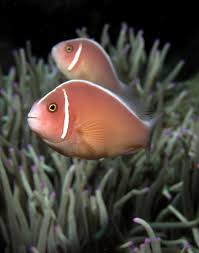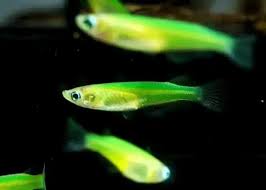Tea has been an essential part of Chinese culture for thousands of years, not only as a beverage but also as a source of relaxation, meditation, and well-being. Among the many health benefits associated with tea, one of the most widely discussed is its potential to relieve stress and anxiety. Fresh Chinese tea, in particular, is known for its rich antioxidant content, calming properties, and ability to promote mental clarity. But does it really help reduce stress and anxiety?
In this article, we will explore the different types of fresh Chinese tea, their active compounds, and how they may contribute to stress relief and anxiety reduction. We will also examine the scientific evidence behind these claims and discuss how to incorporate Chinese tea into a stress-free lifestyle.
The Connection Between Tea and Relaxation in Chinese Culture
In traditional Chinese medicine (TCM), tea is often regarded as a natural remedy for emotional imbalances. Many ancient Chinese scholars, monks, and poets have praised tea for its ability to calm the mind and enhance focus. The practice of drinking tea has long been associated with mindfulness, meditation, and inner peace.
Tea ceremonies, such as the famous Gongfu tea ceremony, emphasize slow, intentional movements that encourage relaxation. By taking time to prepare and drink tea, individuals can cultivate a sense of mindfulness and reduce mental clutter, which is essential for managing stress.
Key Compounds in Fresh Chinese Tea That Help Reduce Stress
Several active compounds in fresh Chinese tea contribute to its stress-reducing properties:
1. L-Theanine – The Natural Relaxant
L-Theanine is an amino acid found primarily in tea leaves, especially in green tea and white tea. It is known for its calming effects and ability to reduce stress without causing drowsiness. Research suggests that L-Theanine works by:
- Increasing alpha brain waves, which are associated with a relaxed but alert mental state.
- Boosting levels of GABA, dopamine, and serotonin, neurotransmitters that help regulate mood and reduce anxiety.
- Counteracting the stimulating effects of caffeine, providing a balanced and gentle energy boost.
2. Antioxidants and Polyphenols – Fighting Stress at the Cellular Level
Fresh Chinese tea is rich in polyphenols, such as catechins, flavonoids, and theaflavins. These antioxidants help:
- Combat oxidative stress, which is linked to anxiety and depression.
- Reduce inflammation, which can negatively impact mental health.
- Protect brain cells from damage and enhance cognitive function.
3. Caffeine and Its Synergistic Effects
Tea contains less caffeine than coffee, but the combination of caffeine and L-Theanine provides a unique effect known as the “calm alertness” state. Unlike the jittery energy from coffee, tea offers:
- Sustained mental focus and concentration.
- A gentle mood boost without increasing anxiety.
- Reduced cortisol levels (the stress hormone) when consumed in moderation.
Which Types of Fresh Chinese Tea Are Best for Stress and Anxiety?
Not all teas have the same effects on stress and anxiety. Here are some of the best fresh Chinese teas for promoting relaxation:
1. Green Tea (Lu Cha, 绿茶) – A Balance of Energy and Calm
Green tea is one of the most well-known teas for stress relief due to its high L-Theanine content and moderate caffeine levels. The best fresh Chinese green teas for stress reduction include:
- Longjing (Dragon Well) Tea – Known for its smooth, slightly sweet taste and calming properties.
- Biluochun Tea – A delicate green tea with floral and fruity notes, promoting relaxation.
2. White Tea (Bai Cha, 白茶) – The Gentle Stress Reliever
White tea is the least processed of all teas, preserving its natural antioxidants and L-Theanine. It has a mild, soothing effect on the nervous system. Popular varieties include:
- Baihao Yinzhen (Silver Needle Tea) – A premium white tea with a delicate taste and high L-Theanine levels.
- Bai Mudan (White Peony Tea) – A slightly stronger white tea with floral and honey-like notes.
3. Oolong Tea (Wulong Cha, 乌龙茶) – The Mood Stabilizer
Oolong tea has a unique balance of polyphenols, caffeine, and amino acids, making it effective for stress relief without causing drowsiness. Recommended varieties include:
- Tie Guan Yin (Iron Goddess of Mercy) – A floral oolong tea known for its calming effects.
- Da Hong Pao (Big Red Robe Tea) – A roasted oolong that promotes warmth and relaxation.
4. Chrysanthemum Tea (Ju Hua Cha, 菊花茶) – A Herbal Alternative
Chrysanthemum tea is a caffeine-free herbal tea that is commonly used in TCM to relieve tension and improve sleep. It:
- Helps cool the body and calm the mind.
- Reduces headaches caused by stress.
- Soothes the nervous system.
5. Pu-erh Tea (普洱茶) – The Grounding Tea
Pu-erh tea is a fermented tea that supports digestion and relaxation. It contains GABA, a neurotransmitter that helps reduce anxiety. Aged Pu-erh is particularly effective for promoting a sense of well-being.
Scientific Evidence: Does Fresh Chinese Tea Really Reduce Stress?
Several scientific studies support the claim that tea can help alleviate stress and anxiety:
- A 2016 study published in the journal Pharmacology, Biochemistry, and Behavior found that L-Theanine in tea significantly reduced stress and improved mood.
- A 2019 study from Nutritional Neuroscience showed that daily green tea consumption lowered cortisol levels and improved psychological well-being.
- A 2021 review in Molecules highlighted the role of tea polyphenols in reducing inflammation and oxidative stress, which are linked to anxiety disorders.
While tea alone may not cure severe anxiety, regular consumption as part of a healthy lifestyle can contribute to better stress management.
How to Incorporate Fresh Chinese Tea into a Stress-Free Lifestyle
Drinking tea is most effective for stress relief when combined with mindfulness and relaxation techniques. Here are some tips:
- Practice Tea Meditation
- Set aside time each day to slowly brew and enjoy your tea without distractions.
- Focus on the aroma, taste, and warmth of the tea to cultivate mindfulness.
- Pair Tea with Deep Breathing Exercises
- Drink a cup of fresh tea while practicing slow, deep breathing to calm your nervous system.
- Drink Tea Before Sleep for Better Relaxation
- Avoid high-caffeine teas at night; opt for white tea, chrysanthemum tea, or lightly brewed oolong.
- Use Tea as a Break from Work or Study
- Take short tea breaks to refresh your mind and prevent burnout.
- Choose High-Quality Fresh Tea
- The fresher the tea, the more beneficial its compounds will be. Always store tea properly to maintain its potency.
Conclusion
Fresh Chinese tea offers a natural and effective way to reduce stress and anxiety. With its unique combination of L-Theanine, antioxidants, and moderate caffeine, tea can help calm the mind, improve focus, and promote overall well-being. Whether you choose green tea for balanced energy, white tea for gentle relaxation, or oolong tea for mood stabilization, incorporating high-quality Chinese tea into your daily routine can be a valuable tool for managing stress.
While tea alone cannot replace professional treatment for severe anxiety, it serves as a wonderful companion for relaxation and mindfulness. So the next time you feel overwhelmed, take a moment to brew a fresh cup of Chinese tea and enjoy its soothing benefits.










